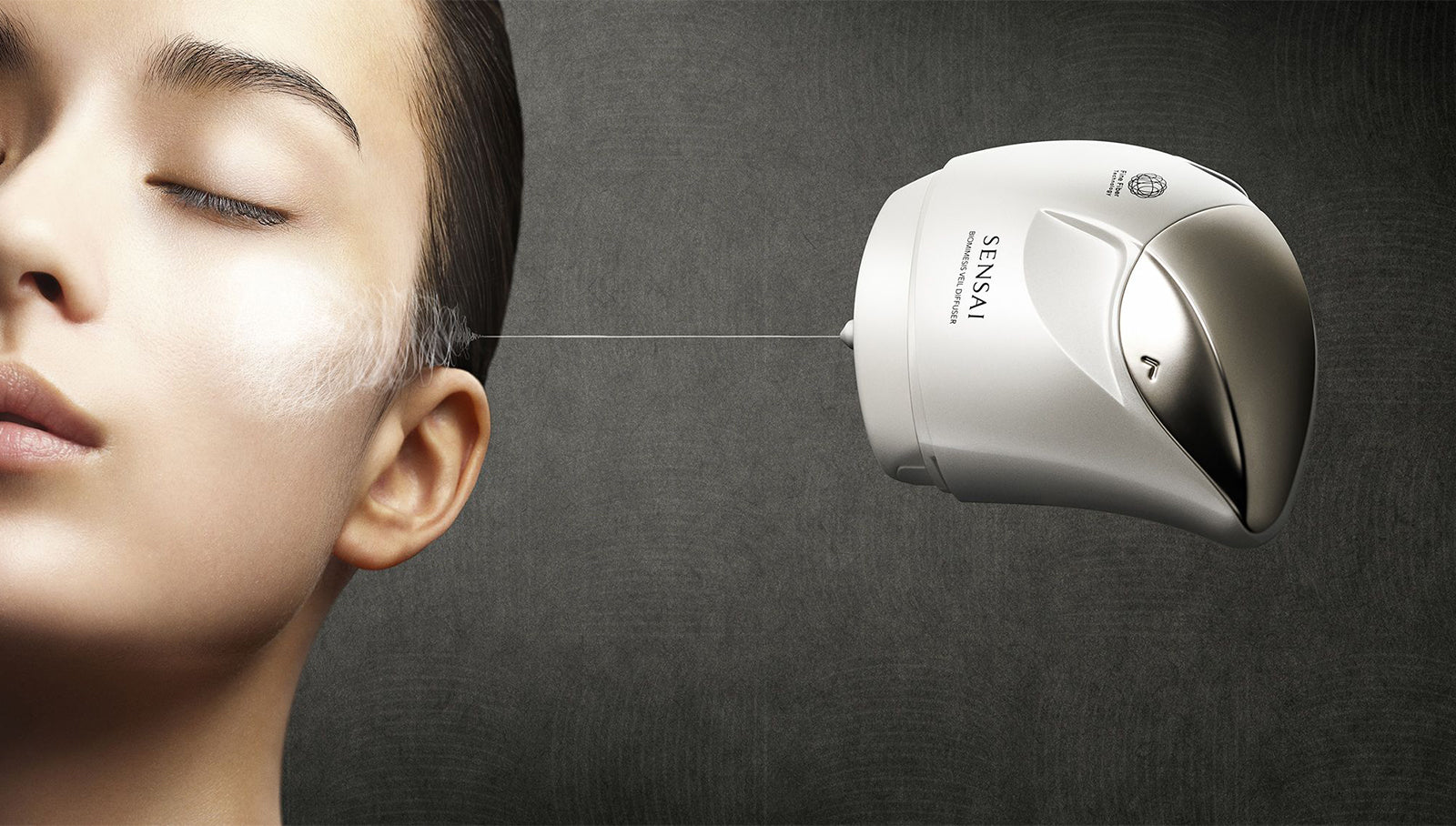
SENSAI: JAPANESE EXCELLENCE FOR BEAUTY
Sensai , a historic and super prestige Japanese brand in the cosmetics sector, was officially founded in 1979 but in reality has a much longer history: it was born almost a hundred years earlier, from an intuition of the entrepreneur Sanji Muto, who was followed by years and years of studies in the search for a perfect meeting point between nature and technology .
The concept of beauty , in Japan, has elegant and aristocratic nuances. Women have soft, clear skin, which aims to restore a sense of eternal youth: the expression usually used to describe this type of beauty is " silk skin ". A metaphor, of course, but also the actual concept (and material) in which Sensai built his philosophy. 
Silk Skin © US

A woman weaving, sitting at a hand loom” © Kitagawa Utamaro
So, starting from this intuition, the manager put in place a research team , from which the first Sensai product was born: " Savon de Soie ", a soap created with silk, the result of the infallible combination of nature and technology. This product was followed by many others, until 1979, the year in which Sensai products by Kanebo Cosmetics debuted on the European market, starting to appear in the windows of Harrods in London , becoming a real ally for many women.
 A bottle of tea tree oil, widely used in Japan © TuttoGreen
A bottle of tea tree oil, widely used in Japan © TuttoGreen
These values are still fundamental today for the brand which, despite having developed and modernised, continues to create product lines linked to the historical philosophy, such as " Silky Purifying Cleaving Oil" and " Silky Purifying Milky Soap" , oil and soap created with natural ingredients designed for skin hygiene, or " Absolute Silk Cream" , the hydrating and illuminating cream, for intense hydration.
 Absolute silk cream, from the Sensai catalogue © TheOldNow
Absolute silk cream, from the Sensai catalogue © TheOldNow
Sensai's true strength lay (and lies) above all in having been able to interpret the ideals of Japanese culture with respect to self-care : in Japan, in fact, the subject is experienced as a sort of garden to be cultivated , both from a spiritual point of view , than from a physical point of view. As with keeping a garden beautiful and healthy, patience, repetition and commitment are also important in personal care: real rituals that accompany the person over time.

The importance of taking care of yourself © Nabi Tang x Stocksy
This approach, as regards facial care, culminates, in Sensai, in the creation of a unique Skin Care ritual, the so-called Saho , which takes up the codes of the label of the same name, concerning the ancient tradition of the Japanese tea ceremony (茶の湯 - Cha no yu ) which is based on four fundamental principles: harmony, purity, respect, tranquility.
Sensai's Saho is in fact a set of methodical, ordered and daily repeated actions of double cleansing, double hydration and double application, which if repeated patiently and daily, allow, as in the tea ceremony, to achieve astonishing results and the so-called SILK SKIN , silky smooth skin .

The traditional tea ceremony in Japan © WAttention
Curiosity? Sensai is a reality present in many Western countries, but it was only in 2019 that it re-entered its homeland, Japan , and in just a few years it is already conquering many people!
PARTICIPATE IN THE "JAPANESE COSMETIC AND SKIN CARE" WORKSHOP
learn to carry out all the SENSAI treatment steps at home to restore the natural beauty of your skin.*
*Limited seats.
MANY OTHER JAPAN-THEMED WORKSHOPS AND MASTERCLASSES ON TENOHA BUNKA ACADEMY




